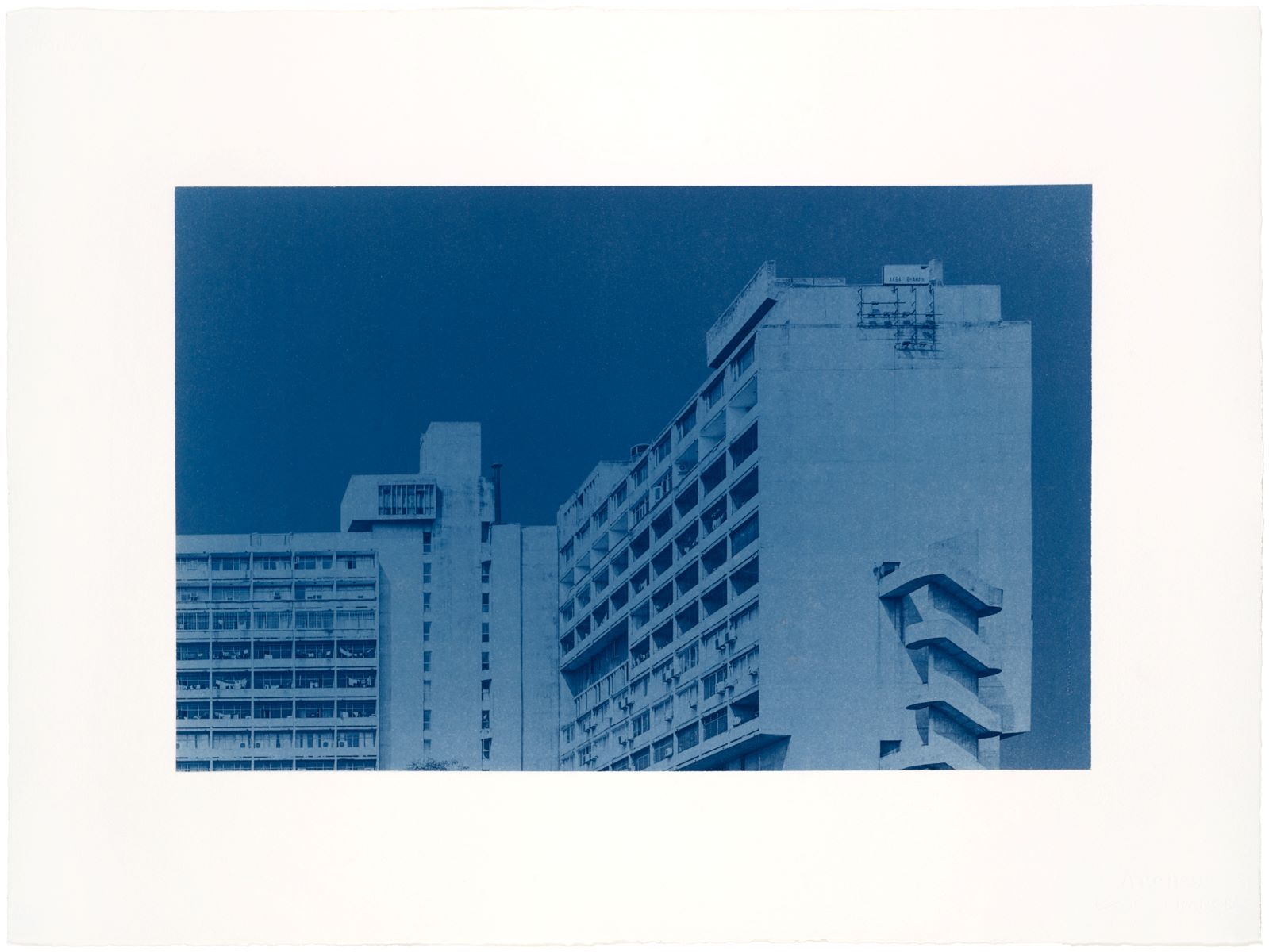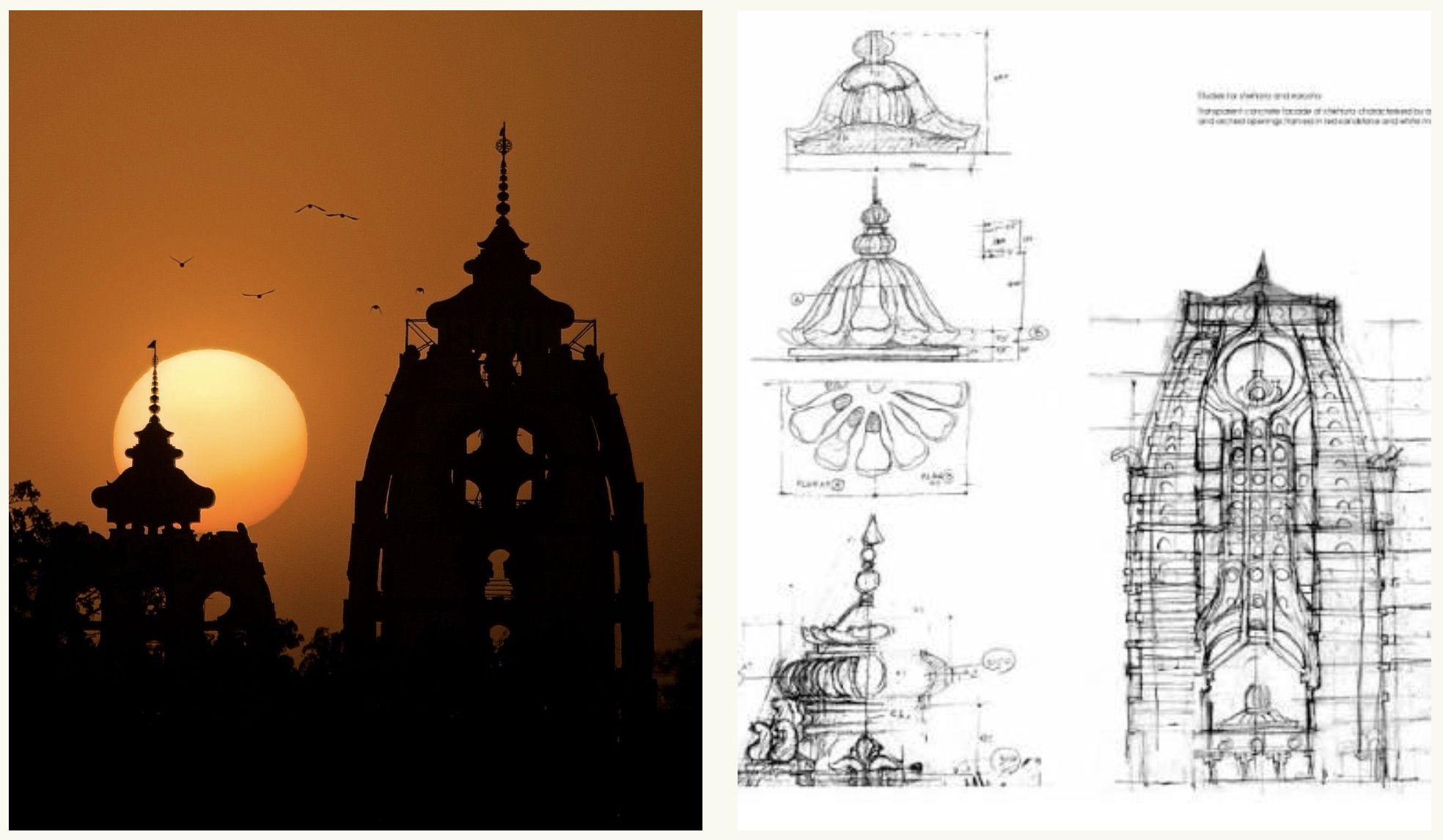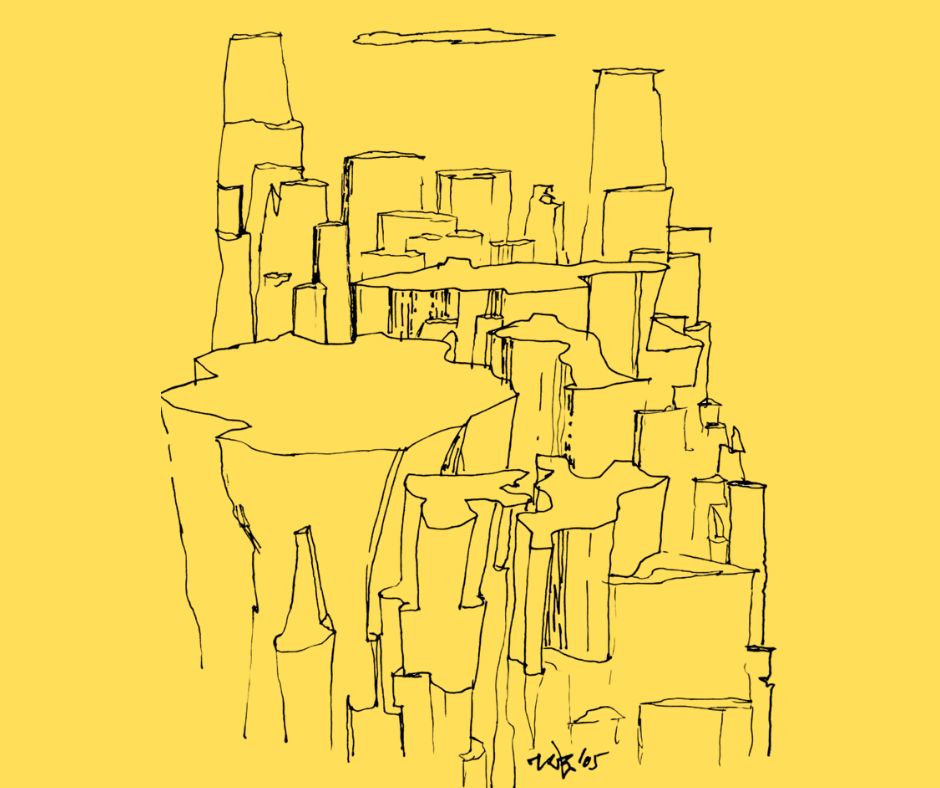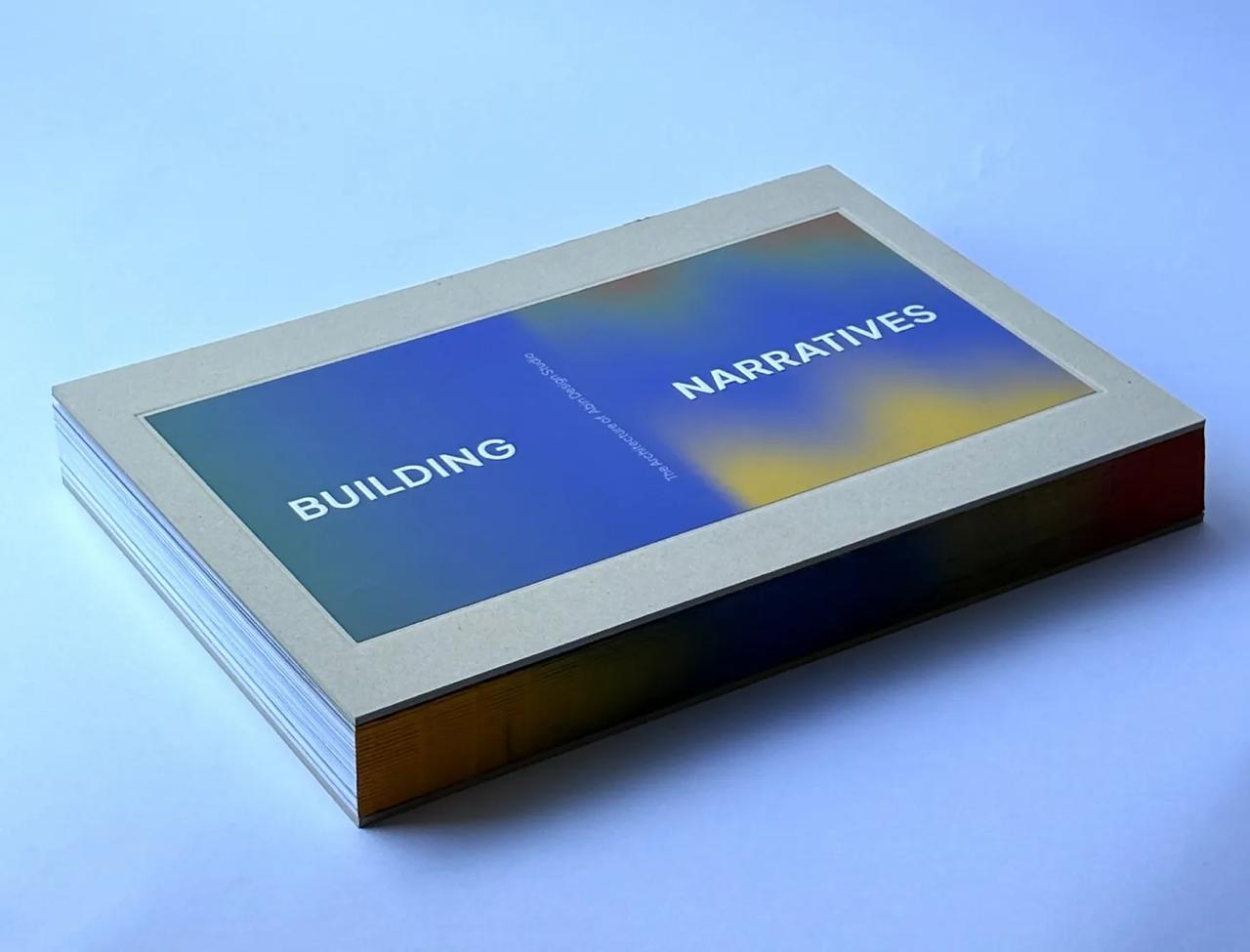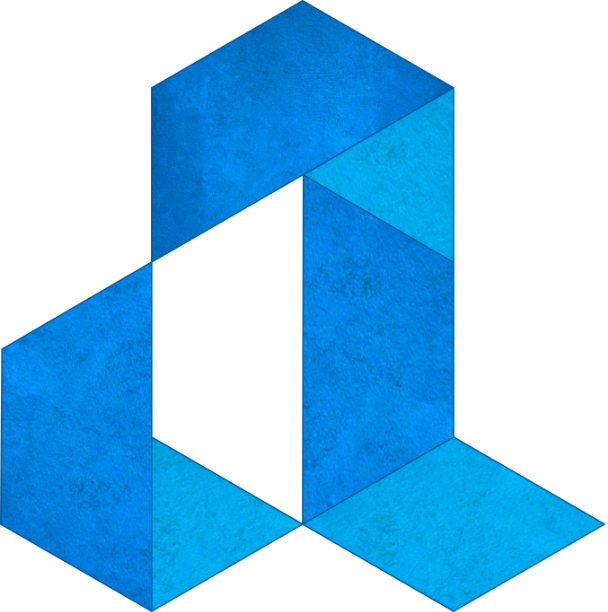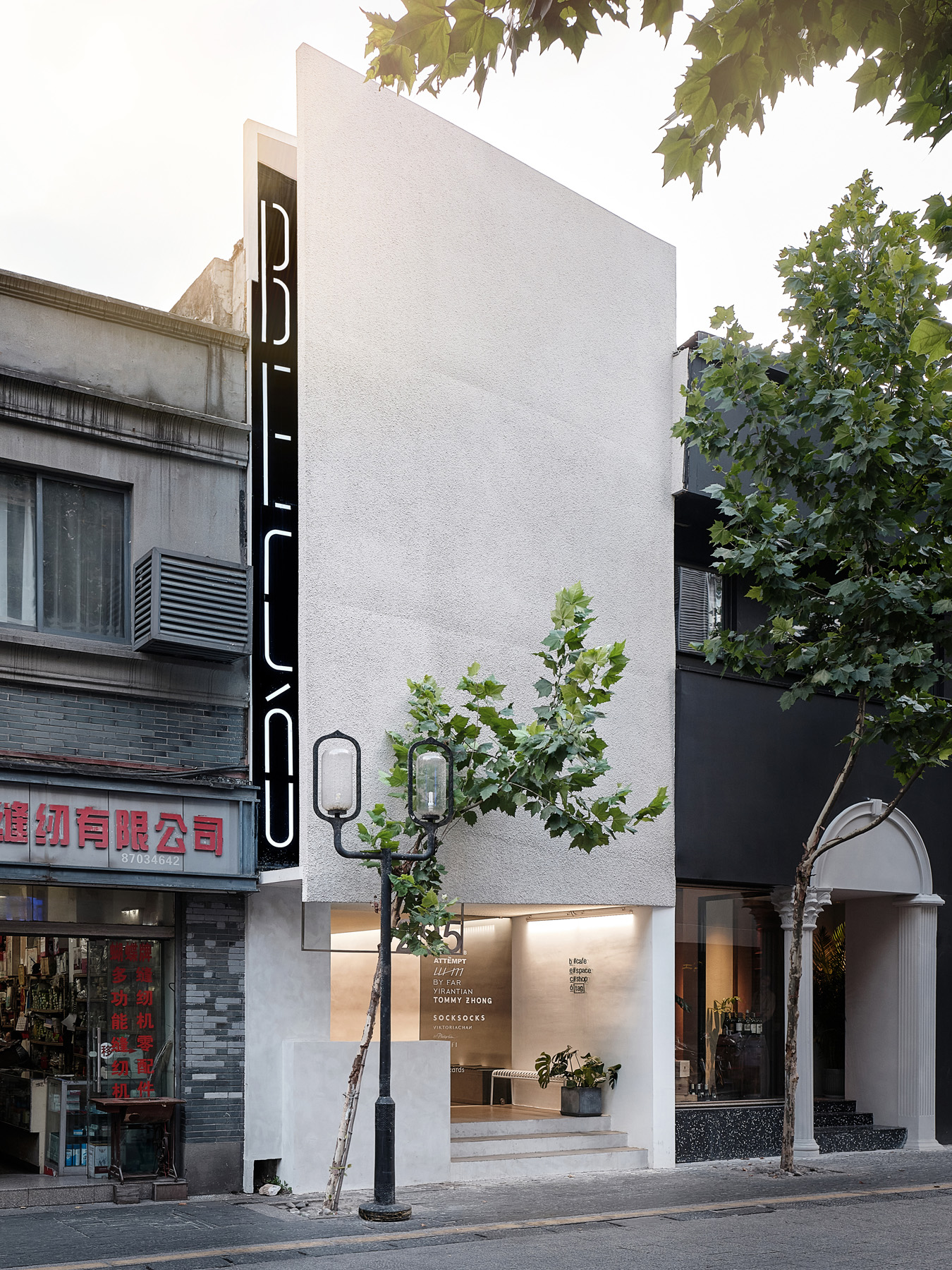
Old street
Known as Imperial Street, Middle Zhongshan Road was one of the most important streets of Hangzhou in Southern Song Dynasty. The prosperity and flourishment of this busy street lasted till the 1990s. In the early 2000s, with the business core area shifted, Middle Zhongshan Road became a pedestrian street in the old town where culture relics of old Hangzhou remains.
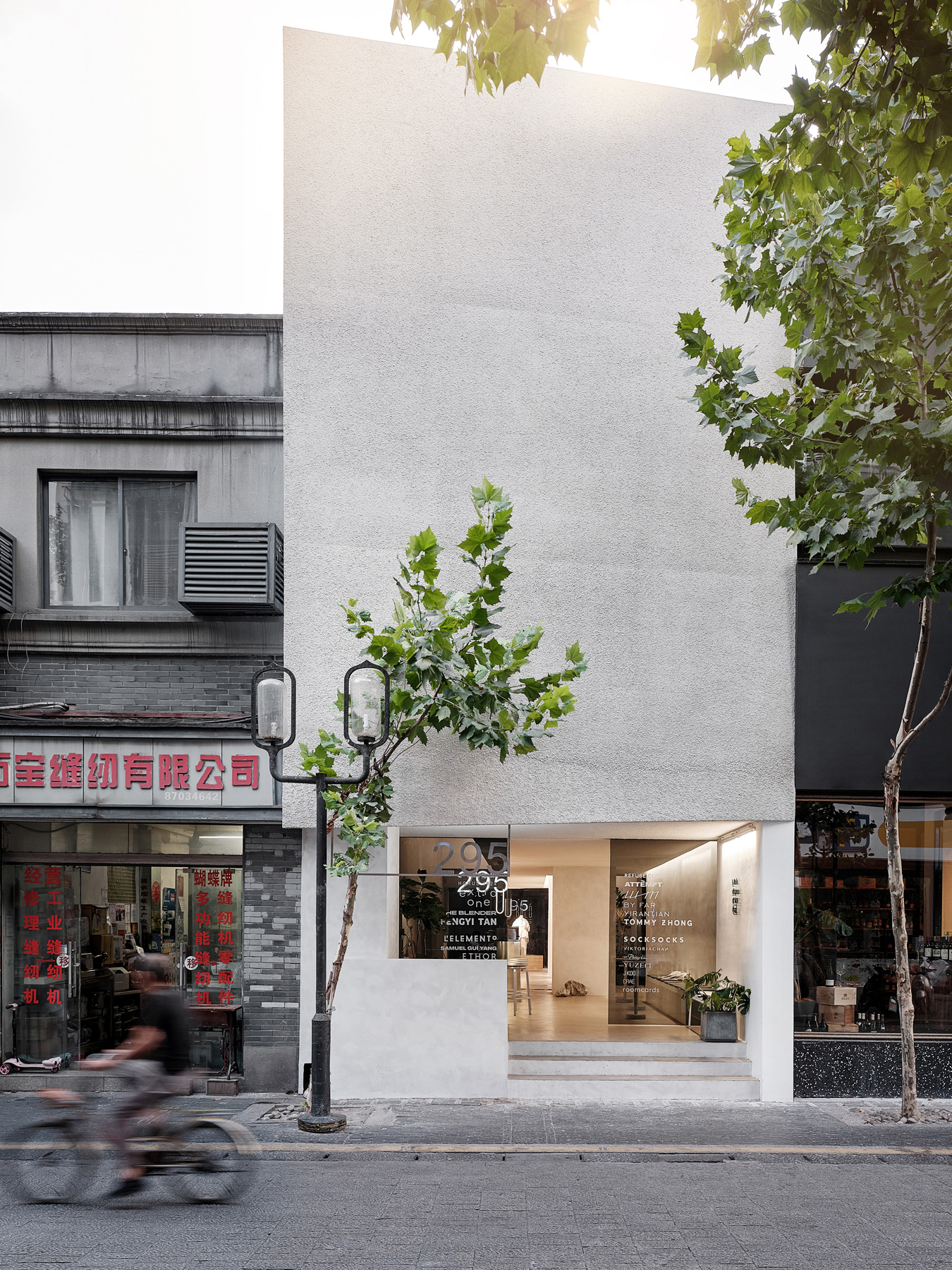
Our renovation project is located at No. 295, Middle Zhongshan Road, near the Jishanfang Alley. The original building was surrounded by shops and old houses with vigorous vibes of business and daily life. The renovation includes the elevation, interior and some display props. On completion, it became Becó295 undertaking the function of designer select store, showroom, workshop and cafe etc.
Order of imaging
At the beginning of design, TEAM_BLDG learned that the old building was originally one of the earliest photo studios in Hangzhou, and it’s only 100 meters away from the ancestral home of the studio founder. In the building, we couldn’t help imagining the past events that were recorded here. The special pattern of the old space reminded us of the camera imaging principle and it became the key to our design.
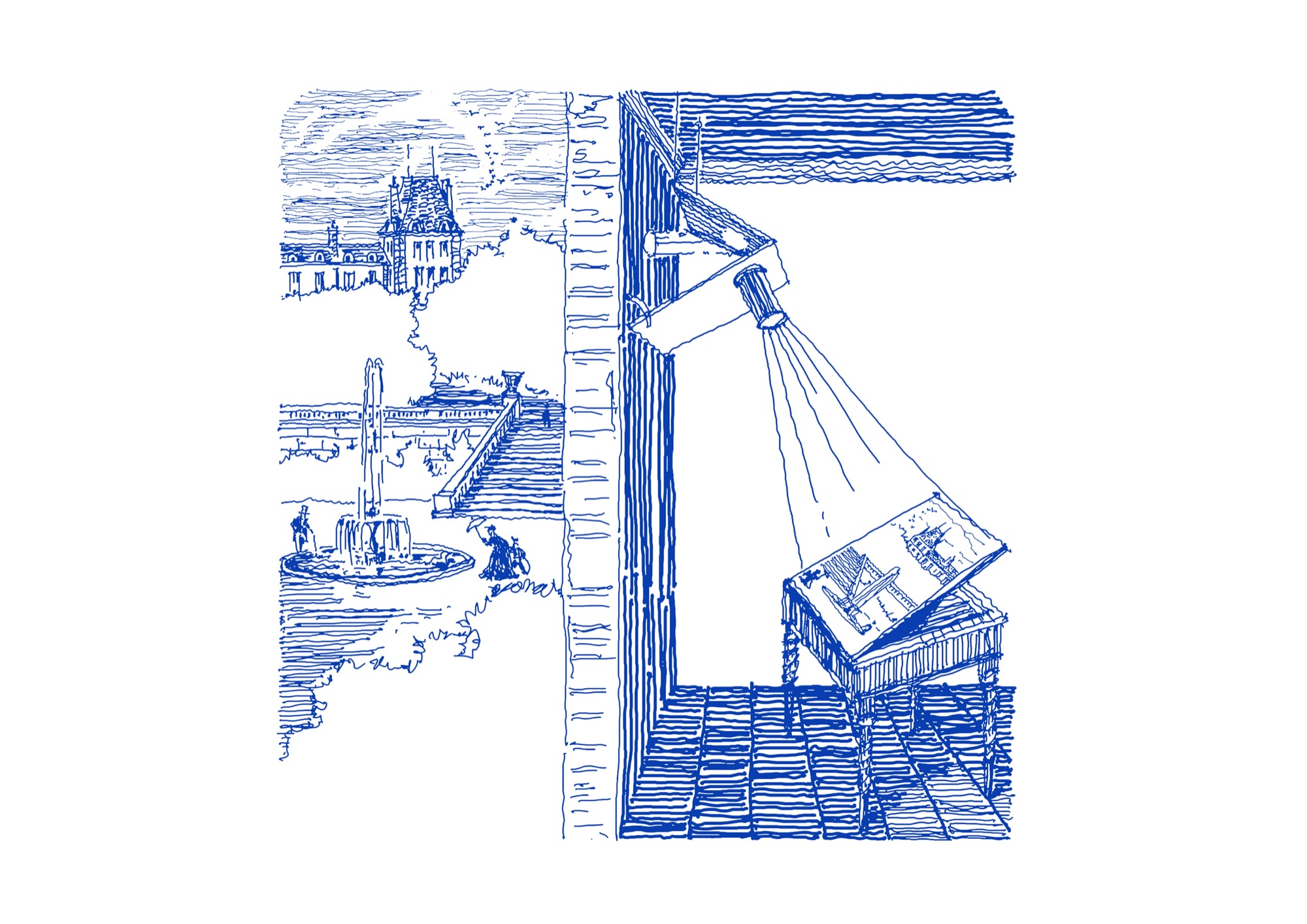
Before renovation, the old space was a KTV and bar. The interior was divided into small rooms either square or long which unable to meet the functional requirements of a select store. It was also our job to solve the problem in renovation to make reasonable arrangements for multiple functional areas of the store.
The first order of imaging: blending into the street
The design of the facade along the street is intended to make the building standing out from other shops around it. On the basis of the original facade, we added a wall and rotated it by 20 degrees to form an “opening”. The upper space of the entrance is relatively complete, like a slightly opened “floating box”. The simple paint finish contrasts with the surrounding buildings, so that the select store can be seen from a distance.
When people approach, they will find the hidden mystery of the “box”. The LED glowing fonts hidden on the back of the new added wall is reflected through the black mirror clearly. Careful observation will reveal that “Becó” is only a virtual image in the mirror. The combination of real and insubstantial brings visual impact to the visitors which arouses the curiosity and bring them into the store.
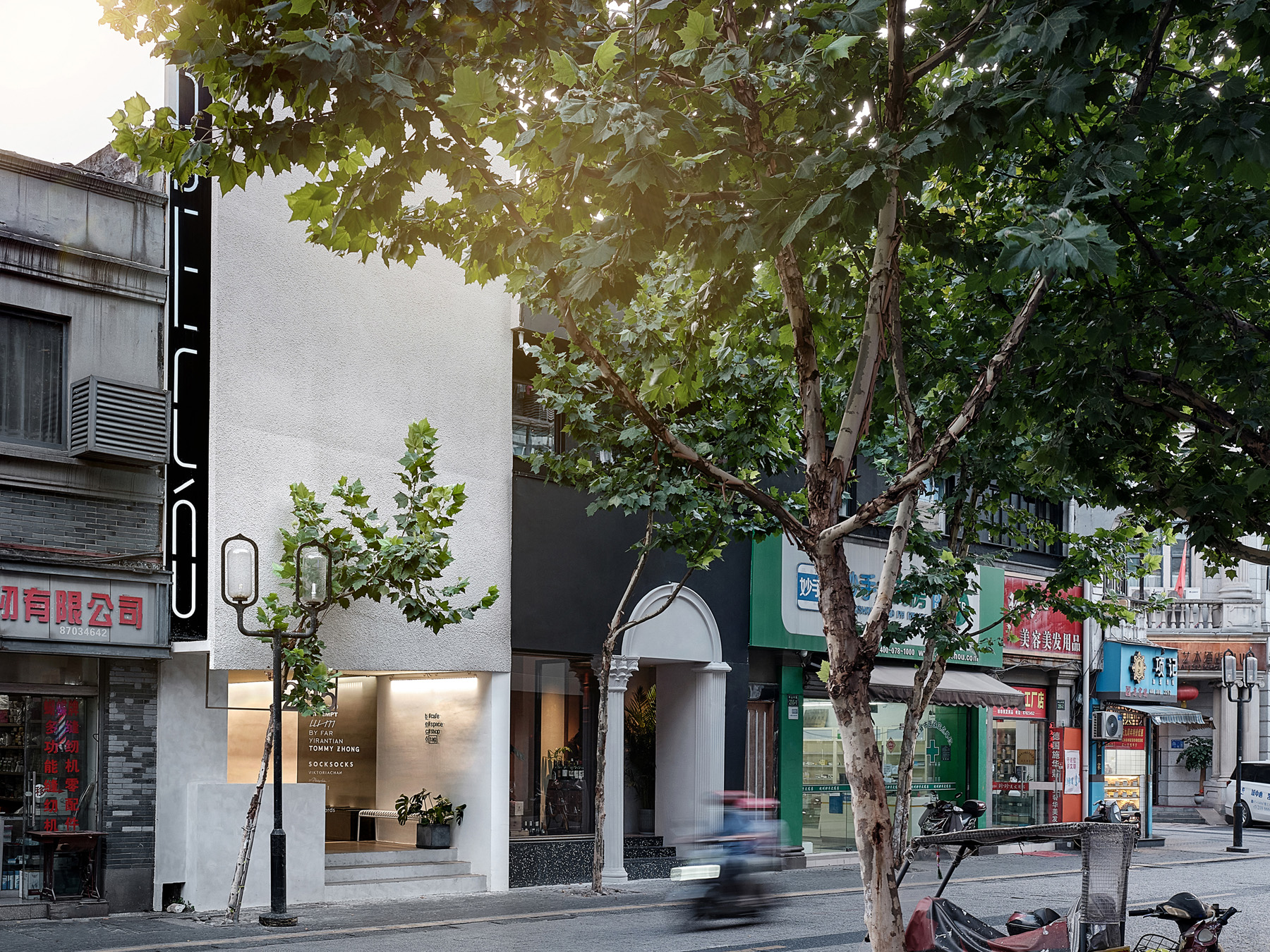
The owner once expressed her hope that the entrance space should attract the passers-by in a “live” way, rather than just a door or a signboard. By sorting the functions of the store, we managed to blur the boundary between indoor and outdoor with the architectural language “semi-opening” , so that the entrance of the store could blend into the Middle Zhongshan Road. Step up into the engawa space and look inside, you will see the cafe area connected to the entrance. Stainless steel bar together with the micro-cement finish create a simple but modern visual impression. And the sales area is hidden behind it. During the day, drinks and light meals are served in the cafe area. At night, the space can be used as a bar. The layout integrated with the street makes the building a public place for viewing, using, staying and sharing. Meanwhile, we have noticed that in many old streets and lanes in Hangzhou, people like to gather in front of their houses for tea and chess in their spare time. This habit is closely related to the “live” status.
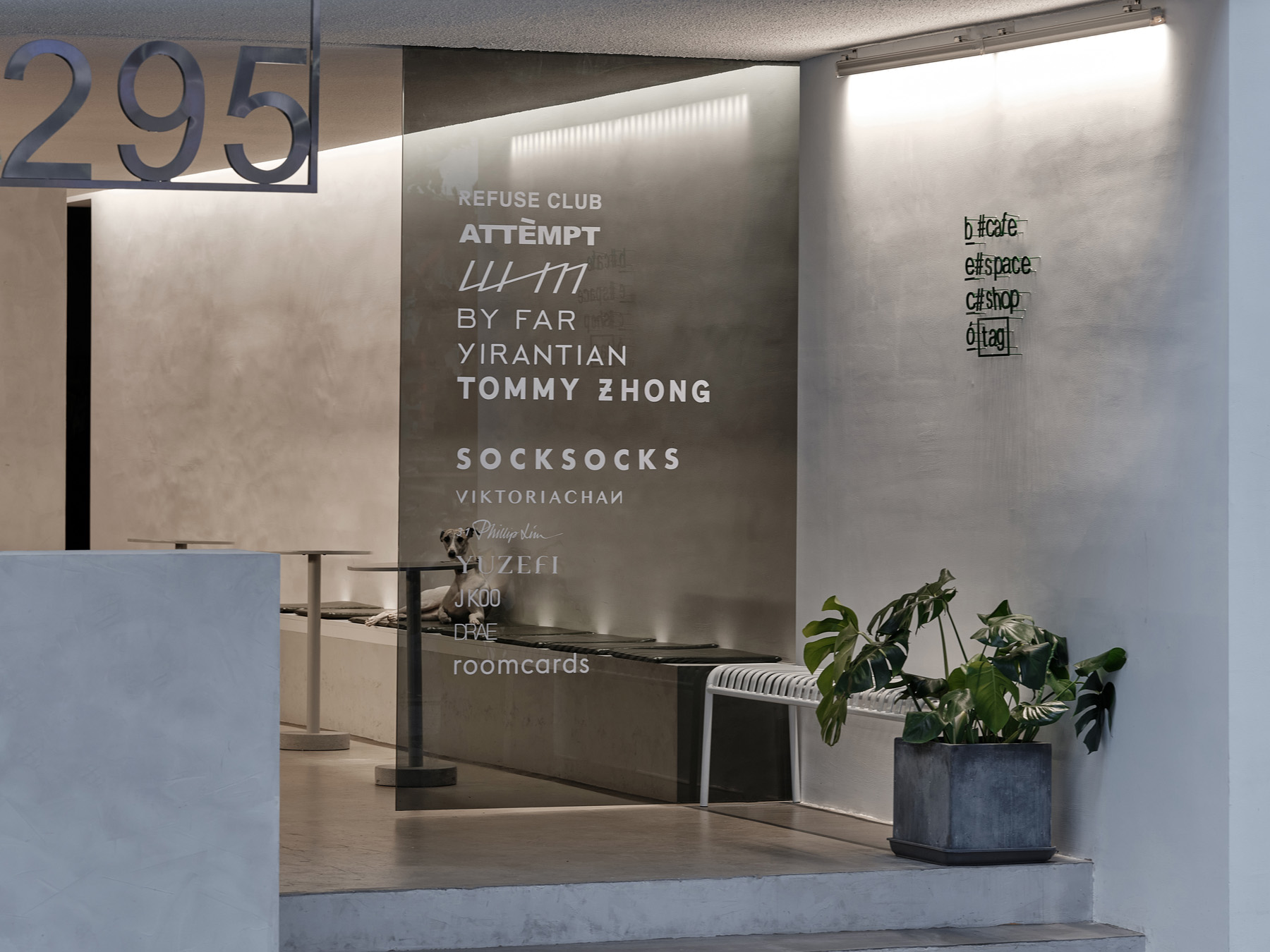
Besides of that, a subtle detail is designed at the entrance based on the imaging principle. The “295” logo on the mirrored glasses actually comes from the light emitted by the LED on the back of the stainless steel font. The street view of Middle Zhongshan Road is faintly reflected on two mirrored glasses. Reflections of passers-by interact with the shop display, bringing vitality to the original narrow space.
The second order of imaging: objects in the mirror
When TEAM_BLDG first visited the site with the owner, we found the short alley on the north side of the building quite impressive. The store name“Becó ” means “alley” in Portuguese which contains clues to the future development of the brand. And “alley” has become the “finishing touch” in the sales and display space.
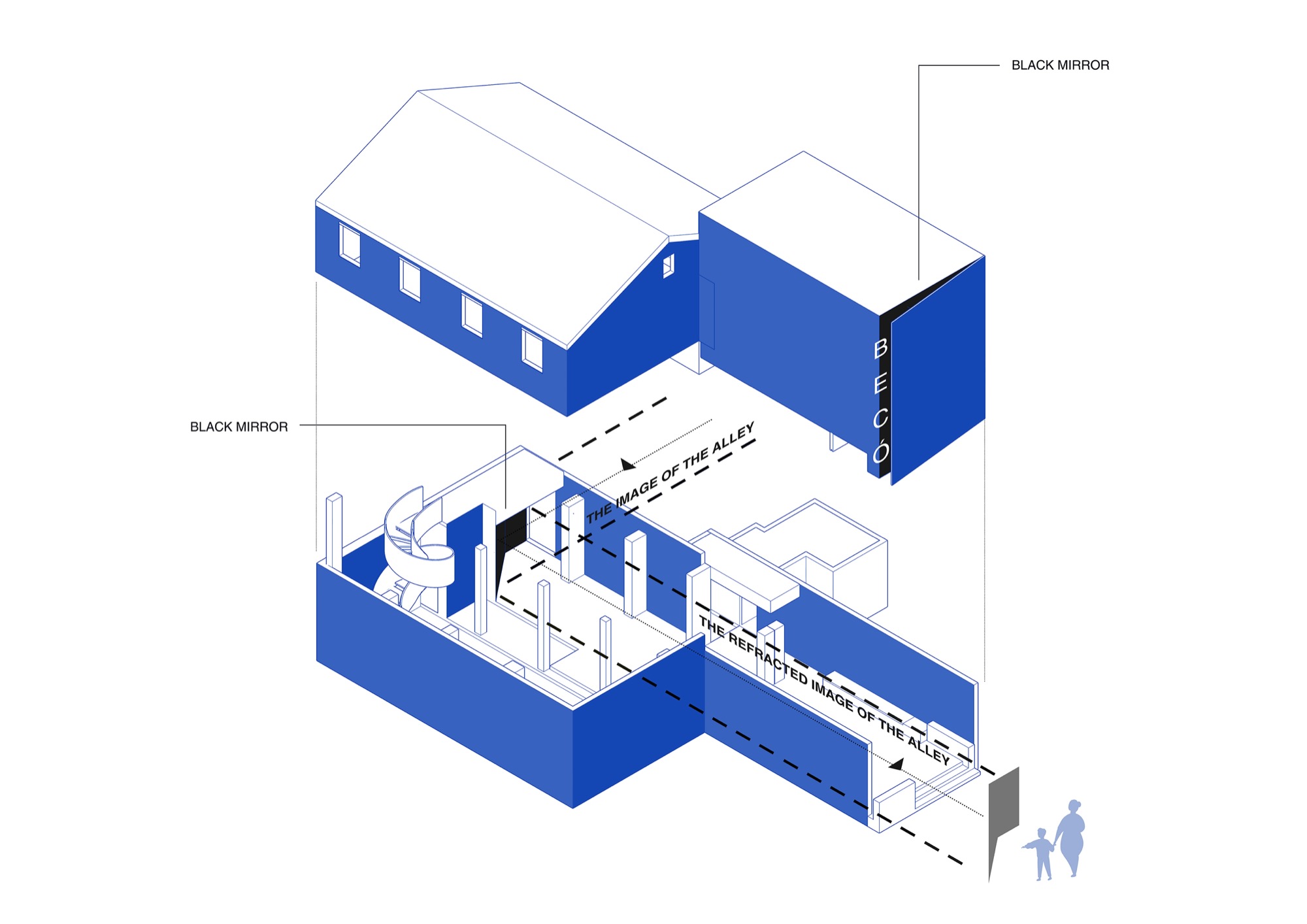
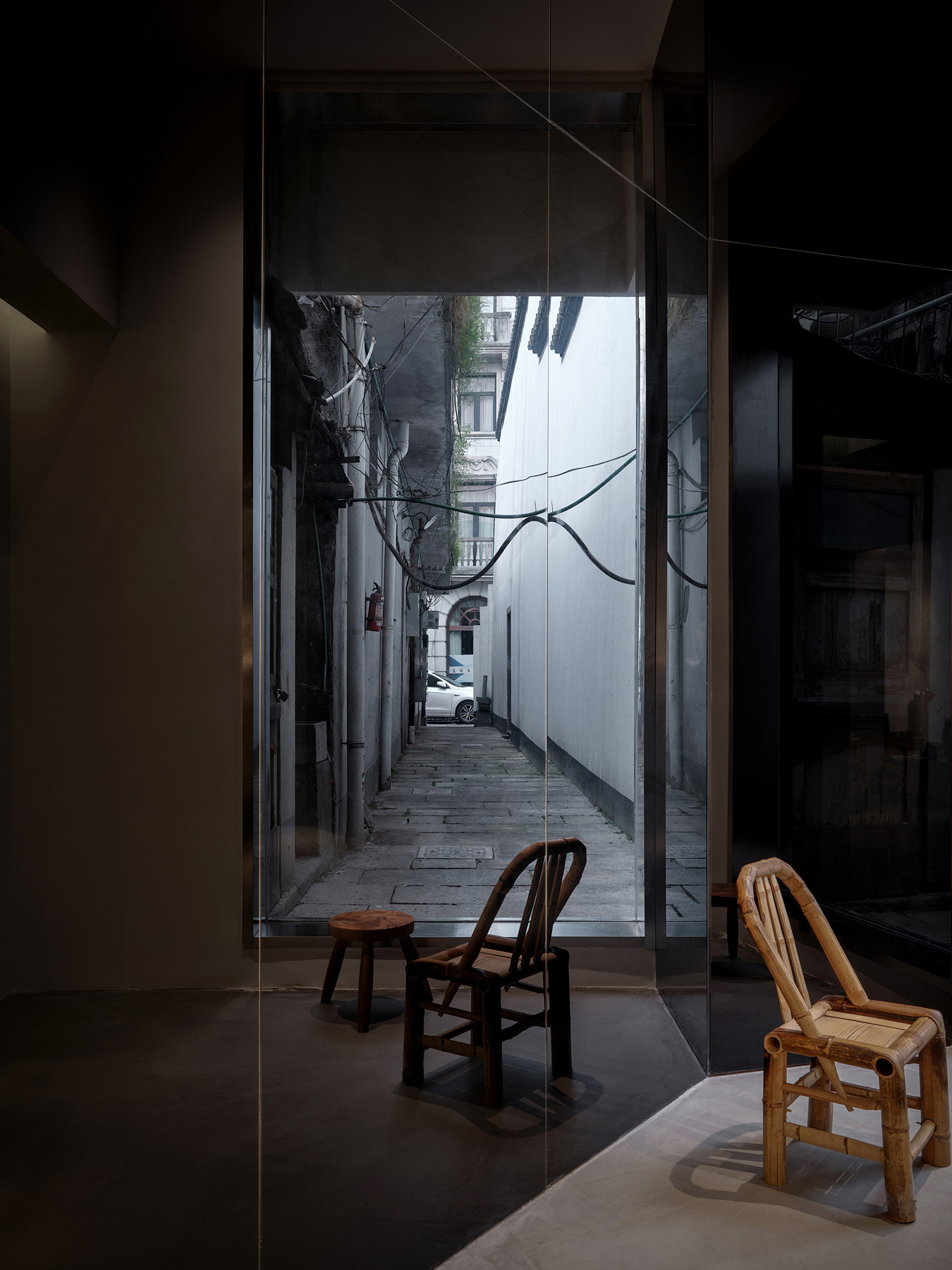
Hidden behind couple of old houses, the short alley is connected to the north side of the store and can only be reached by a detour. It was the focus of our design thinking to make it possible for people to be aware of the alley when inside the space or even at the entrance along the street. A black mirror is placed next to the window on the north side of the first floor, with an angle of 45 degrees so that the view of the alley outside the window would be reflected on the black mirror, which creates a visual connection between the alley and the entrance. The shadowy view of old alley mingles with the display area by mirror refraction, which flavors the space with visual interest and sense of time.
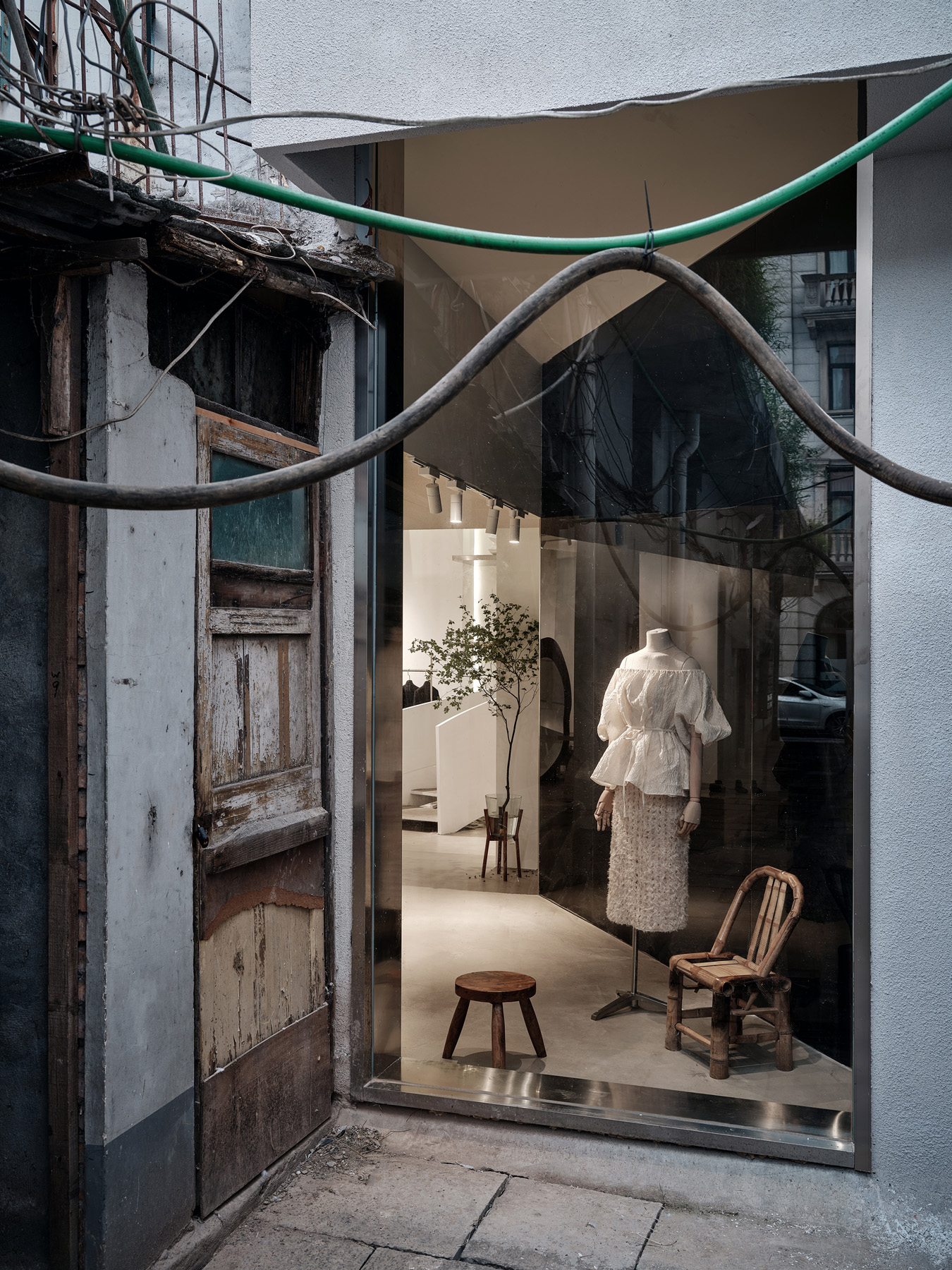
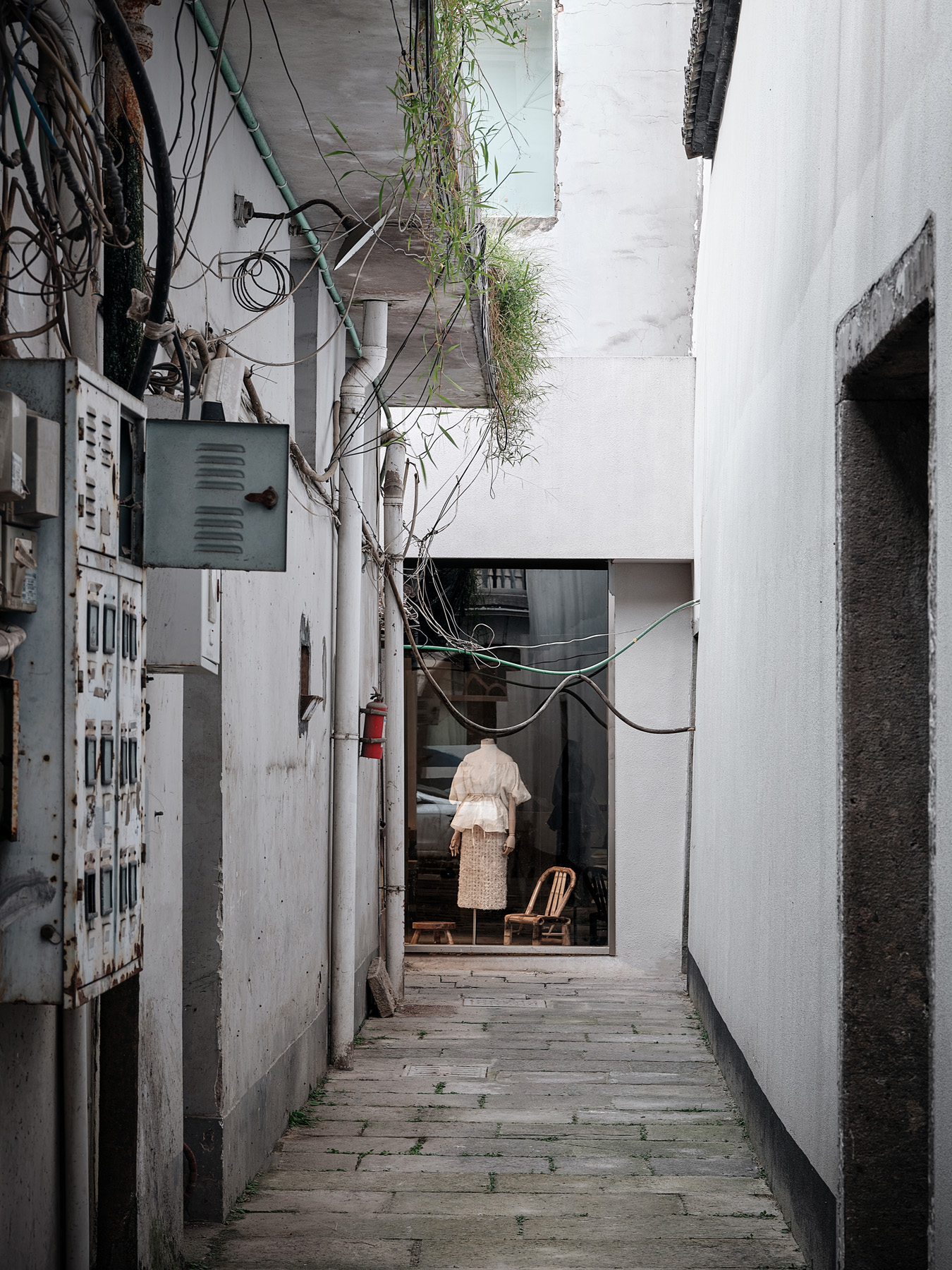
The same mirror trick is also used in the dressing room. Multiple spatial dimensions are created by complex mirror angles, bringing surprise to the customers who enter the room.
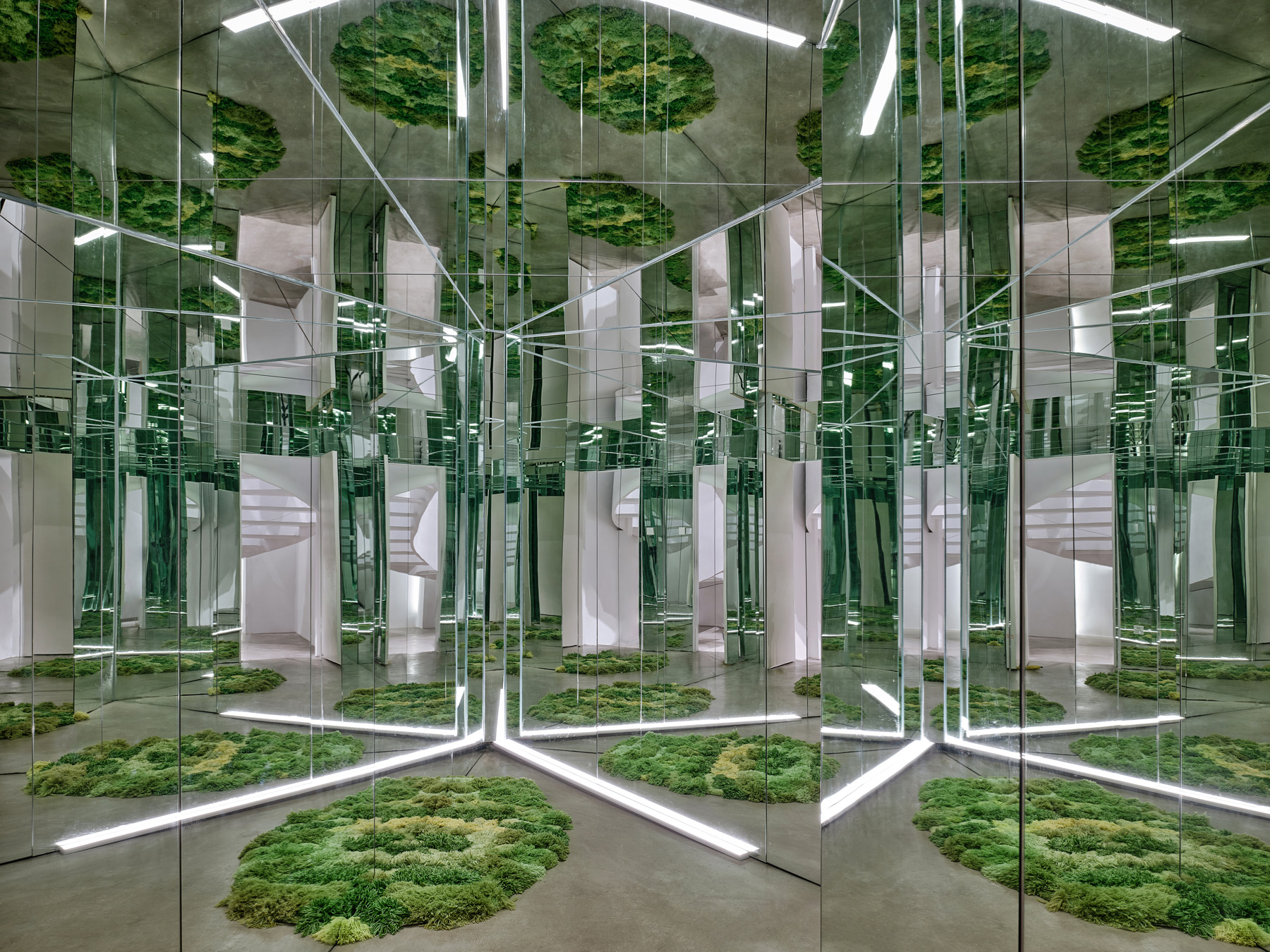
The third order of imaging:The box
The ground floor of Becó295 is open as a whole space. the two functional spaces of north and south are divided only by ground elevation. Cross the cafe area at the entrance, visitors come to the integration zone of independent designers where products are displayed by hanging mostly and customized stands are scattered like islands. With a 30 centimeter’s subside, the south side became a separated space of display and event. A spiral staircase sits here as a visual focus of this square box and as a podium in events.
The second floor works as the thematic display and VIP area. When climbing up, the shape of the spiral staircase blocks part of the view, stimulating desire for exploration. With the void structure of the second floor, natural light is brought into the ground floor as much as possible while the turn-back moving line is limited to single-in and single-out. As a result, the experience of going to the inside of the “box” is set to turn from a narrow alley-like passage into a relatively open space.
On the second floor, there’s plenty of natural light inside the room. Part of the lights are embedded into the wall as supplements to the CDM-TD spot lights. With layers of soft lights refracting, the room looks bright and transparent. And the visual depth is increased by the internal reflection of the mirror door on the east side. On the other hand, original roof structure of the second floor is preserved in the renovation. Bare truss and glass, cement self-leveling materials, etc., old ones mixed with the new ones, presenting the comparison of the atmosphere belonging to different times.
Shortcomings and difficulties
Back to the days when the walls to be demolished, the exposed wall column made of red bricks laid before us as the original mark of the old house. The architects hoped to have the rough texture preserved in the renovation at first. Out of the consideration of the tonality of the select store, the red bricks have not been shown in the end. Other than that, our architects think that it would be more appropriate if the spiral staircase presented inside the space in a way more restrained.
The design of Becó295 went along quite well. As to the construction, many details couldn’t be delivered properly due to the limitation of worker’s skill. Repeated adjustment and correction resulted in an unnecessary extension of the project timeline.
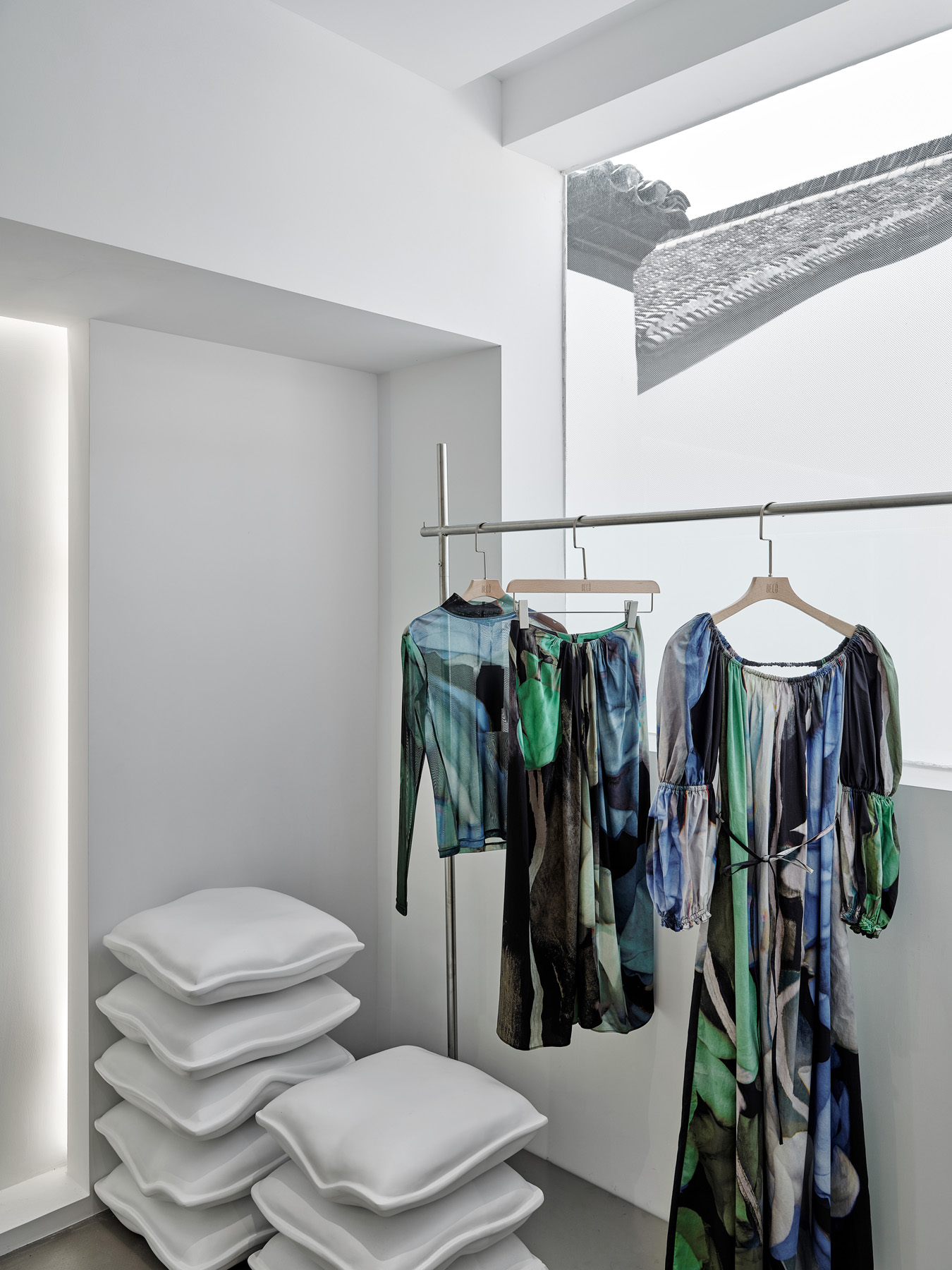
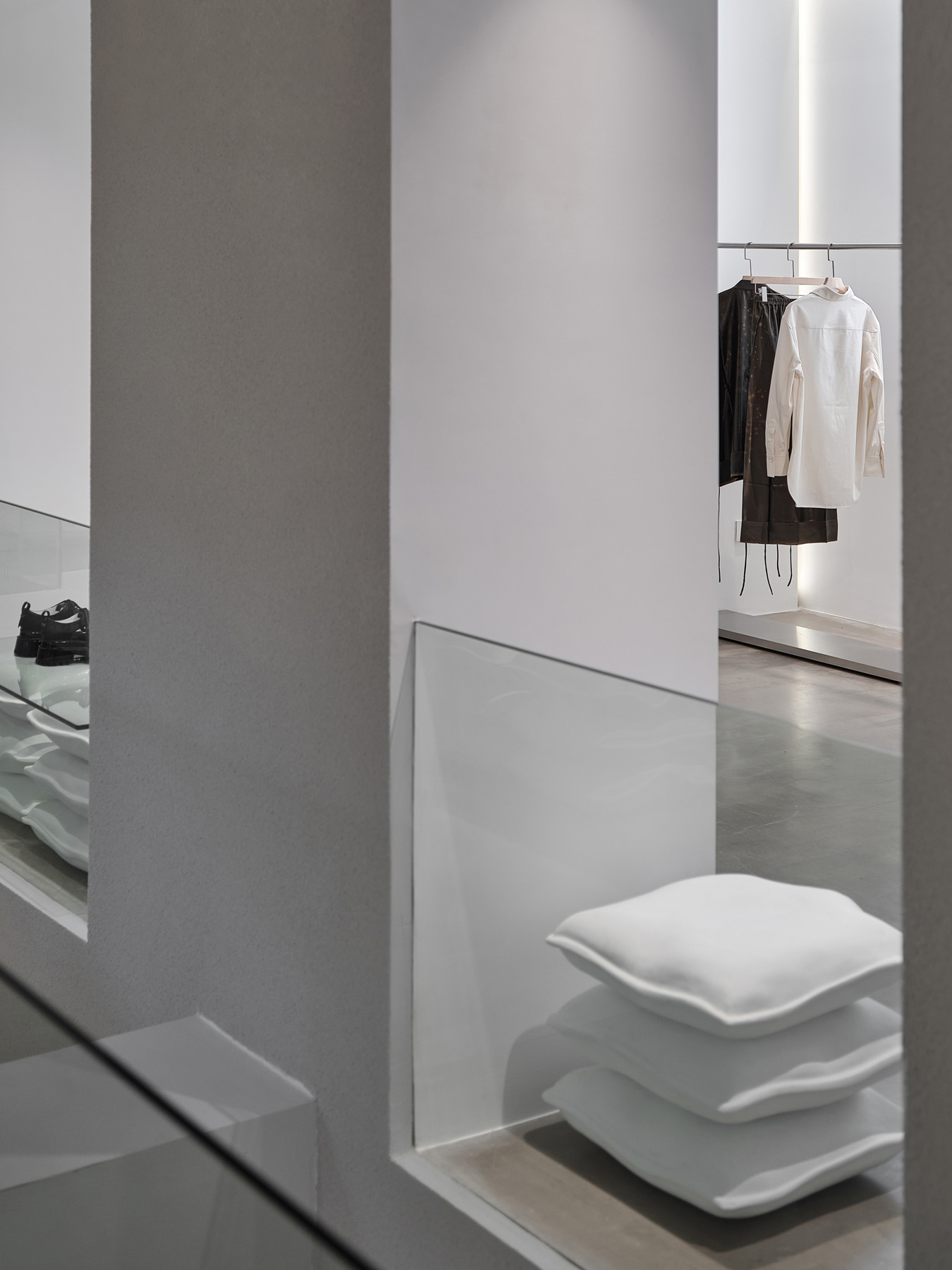
The various street scales of Middle Zhongshan road remind us of old Hangzhou. It’s our hope that given the spatial picture of the coexistence of old and new, people walking into Becó295 could experience the city from a different angle.
Drawings
Project Facts
Project Name: Scenery Alley | Hangzhou Becó295 select store and creative space
Function: select store, exhibition, coffee
Design Period: 2020.10-2020.12
Construction Period: 2020.12-2021.06
Location: 295 Middle Zhongshan Road, Hangzhou, China
Building Area: 318.3SQM
Architects: Xiao Lei, Shigeno Yuji,Wang Zipeng, Shi Jiaxin
Collabrations: N/A
Owner: Becó295
Type: Interior and exterior facade renovation
Status: Completed
Photographs: Jonathan Leijonhufvud
Assistant Cameraman: Wai Wai
























